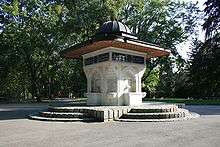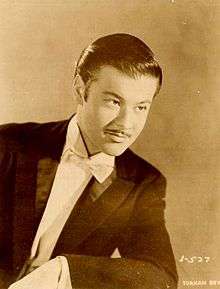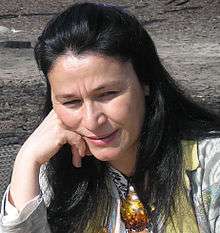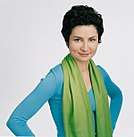Turks in Austria
Austrian Turks (German: Türken in Österreich; Turkish: Avusturya Türkleri) are people of Turkish ethnicity living in Austria who form the second largest ethnic group in the country after Austrians.
| Total population | |
|---|---|
| 185,592 (Turkish citizens, including dual citizen)[1]
350,000[2][3][4]-500,000[5][6] (including descendants) | |
| Regions with significant populations | |
| Languages | |
| Religion | |
| Predominantly Sunni Islam, minorities: Alevism, Irreligious, Roman Catholic |
History
| Turkish Citizens in Austria[7][8][9] | |||||||
| Year | Population | Year | Population | ||||
|---|---|---|---|---|---|---|---|
| 1951 | 112 | 2005 | 116,544 | ||||
| 1961 | 217 | 2006 | 113,068 | ||||
| 1971 | 16,423 | 2007 | 108,189 | ||||
| 1981 | 59,900 | 2008 | 108,762 | ||||
| 1991 | 118,579 | 2009 | 109,985 | ||||
| 1997 | 132,737 | 2010 | 111,302 | ||||
| 1998 | 131,729 | 2011 | 112,461 | ||||
| 1999 | 127,533 | 2012 | 112,917 | ||||
| 2000 | 126,995 | 2013 | 113,670 | ||||
| 2001 | 127,226 | 2014 | 114,740 | ||||
| 2002 | 127,147 | 2015 | 115,433 | ||||
| 2003 | 127,156 | 2016 | 116,026 | ||||
| 2004 | 123,043 | ||||||
Turkish people were recruited to Austria as Gastarbeiter (guest workers) for the construction and export industries following an agreement with the Turkish government in 1964. From 1973 the policy of encouraging guest workers ended and restrictive immigration laws were introduced, first with the 1975 Aliens Employment Act, setting quotas on work permits, and then the 1992 Residence Act, which set quotas for residency permits without the right to work. A more restrictive system was put in place in 1997 and further limits imposed in 2006.
Since the 1970s Turks living and working in Austria have focused on family reunification and on seeking Austrian citizenship, for which they need to have lived in Austria for 10 years.
Population
According to the 2001 census, there was 183,445 Turkish nationals living in Austria. According to the Minority Rights Group International many of the Turks living in Austria have been naturalized and the full community is estimated to number between 200,000 and 300,000. Turks are the largest single immigrant group, the leading group seeking Austrian citizenship, and account for the majority of Muslims.[10]According to BBC the number of Turks in Austria are estimated to be around 350,000.[11]
Demographics
| Turkish Citizens in Austria[12] | |||||||
| States of Austria | 1971 | 1981 | 1991 | 2001 | |||
|---|---|---|---|---|---|---|---|
| Austria | 16,423 | 59,900 | 118,579 | 127,226 | |||
| Burgenland | 33 | 238 | 630 | 1,280 | |||
| Carinthia | 23 | 173 | 595 | 1,192 | |||
| Lower Austria | 3,479 | 10,125 | 18,129 | 19,911 | |||
| Upper Austria | 1,261 | 5,665 | 13,233 | 17,226 | |||
| Salzburg | 951 | 2,986 | 6,558 | 8,800 | |||
| Styria | 140 | 401 | 1,560 | 4,793 | |||
| Tyrol | 1,664 | 6,890 | 13,652 | 16,017 | |||
| Vorarlberg | 5,049 | 13,712 | 20,346 | 18,838 | |||
| Vienna | 3,823 | 19,710 | 43,876 | 39,119 | |||

Notable people
 Taner Ari, football player
Taner Ari, football player.jpg) Cem Atan, football player
Cem Atan, football player Turhan Bey, actor
Turhan Bey, actor.jpg) Bülent Kaan Bilgen, football player
Bülent Kaan Bilgen, football player Ekrem Dağ, football player
Ekrem Dağ, football player Harun Erbek, football player
Harun Erbek, football player Emel Heinreich, actress, author and film-director
Emel Heinreich, actress, author and film-director Veli Kavlak, football player
Veli Kavlak, football player.jpg) Tanju Kayhan, football player
Tanju Kayhan, football player Alev Korun, congresswoman in the Austrian Parliament
Alev Korun, congresswoman in the Austrian Parliament Ramazan Özcan, football player
Ramazan Özcan, football player.jpg) Yasin Pehlivan, football player
Yasin Pehlivan, football player
References
- "Kommission für Migrations und Integrationsforschung der Österreichischen Akademie der Wissenschaften" (PDF). Statistik Austria. 2012. p. 27.
- BBC (2010-11-10). "Turkey's ambassador to Austria prompts immigration spat". BBC News. Retrieved 2010-11-10.
- Avrupa Türk-İslam Birliği. "Avusturya Türk İslam Kültür ve Sosyal Yardımlaşma Birliği:Sosyal Hayat ve Dini Yapı". Archived from the original on 2011-05-31. Retrieved 2010-11-13.
- Yakın Dünya. "Türkiye'nin Avusturya Büyükelçisi Göçmen Meselesini Gündeme Getirdi". Retrieved 2010-11-13.
- Andreas Mölzer. "In Österreich leben geschätzte 500.000 Türken, aber kaum mehr als 10–12.000 Slowenen". Archived from the original on 2012-07-22. Retrieved 2011-10-16.
- Juedische-Allgemeine. "Erheblicher Anstieg antisemitischer Vorfälle in Wien". Retrieved 2010-11-13.
- Statistik Austria. "Bevölkerung nach Staatsangehörigkeit und Geschlecht 1951 bis 2001". Archived from the original on 2009-09-23. Retrieved 2009-09-23.
- Potz & Wieshaider 2004, 200.
- Statistik Austria. "Bevölkerung zu Jahresbeginn seit 2002 nach zusammengefasster Staatsangehörigkeit". Retrieved 2017-03-13.
- Minority Rights Group International. "Turks". Archived from the original on 2009-04-29. Retrieved 2009-01-15.
- "Turkey's ambassador to Austria prompts immigration spat". BBC News.
- Matzka 2009, 3.
Bibliography
- Abadan-Unat, Nermin (1976), Turkish Workers in Europe 1960-1975: A Socio-economic Reappraisal, BRILL, ISBN 90-04-04478-7.
- Abbott, John S. C. (2007), The Empire of Austria: Its Rise and Present Power, BiblioBazaar, ISBN 978-1-4264-9252-5.
- Ache, Peter (2008), Cities Between Competitiveness and Cohesion: Discourses, Realities and Implementation, Springer, ISBN 978-1-4020-8240-5.
- Akgündüz, Ahmet (2008), Labour Migration from Turkey to Western Europe, 1960-1974: A Multidisciplinary Analysis, Ashgate Publishing, ISBN 978-0-7546-7390-3.
- Bauböck, Rainer (2006), Migration and Citizenship: Legal Status, Rights and Political Participation, Amsterdam University Press, ISBN 90-5356-888-3.
- Bhatia, Tej K.; Ritchie, William C. (2006), The Handbook of Bilingualism, Wiley-Blackwell, ISBN 0-631-22735-0.
- Boswell, Christina; Royal Institute of International Affairs (2003), European Migration Policies in Flux: Changing Patterns of Inclusion and Exclusion, Wiley-Blackwell, ISBN 1-4051-0296-9.
- Dana, Leo Paul (2008), Handbook of Research on Ethnic Minority Entrepreneurship: A Co-evolutionary View on Resource Management, Edward Elgar Publishing, ISBN 978-1-84542-733-7.
- Frejka, Tomaš; Hoem, Jan Michael; Toulemon, Laurent; Sobotka, Tomáš (2008), Childbearing Trends and Policies in Europe, Books on Demand, ISBN 978-3-8370-6187-1.
- Hunter, Shireen (2002), Islam, Europe's Second Religion: The New Social, Cultural, and Political Landscape, Greenwood Publishing Group, ISBN 0-275-97609-2.
- Kasaba, Reşat (2008), The Cambridge History of Turkey: Volume 4, Turkey in the Modern World, Cambridge University Press, ISBN 978-0-521-62096-3.
- Kohl, Katrin Maria; Robertson, Ritchie (2006), A History of Austrian Literature 1918-2000, Boydell & Brewer, ISBN 1-57113-276-7.
- Martin, Philip L.; Weil, Patrick (2006), Managing Migration: The Promise of Cooperation, Lexington Books, ISBN 0-7391-1341-0.
- Matzka, Christian (2009), Austria and Turkey: their burden of histories (PDF), http://www.herodot.net/: University of Vienna
- Nielsen, Jørgen S. (2004), Muslims in Western Europe, Edinburgh University Press, ISBN 0-7486-1844-9.
- Nikolov, Marianne; Curtain, Helena (2000), An Early Start: Young Learners and Modern Languages in Europe and Beyond, Council of Europe, ISBN 92-871-4411-7.
- Organisation for Economic Co-operation and Development (2008), International Migration Outlook: SOPEMI 2008, OECD Publishing, ISBN 978-92-64-04565-1.
- Panayi, Panikos (1999), Outsiders: A History of European Minorities, Continuum International Publishing Group, ISBN 1-85285-179-1.
- Plender, Richard (1988), International Migration Law, Martinus Nijhoff Publishers, ISBN 90-247-3604-8.
- Potz, Richard; Wieshaider, Wolfgang (2004), Islam and the European Union, Peeters Publishers, ISBN 90-429-1445-9.
- Statistik Austria (2017), Bevölkerung zu Jahresbeginn seit 2002, Statistik Austria
- Waardenburg, Jacques (2003), Muslims and Others: Relations in Context, Walter de Gruyter, ISBN 3-11-017627-0.
Further reading
- Kroissenbrunner, Sabine (July 2003), "Islam and Muslim Immigrants in Austria: Socio-Political Networks and Muslim Leadership of Turkish Immigrants", Immigrants and Minorities, 22 (2–3): 188–207, doi:10.1080/0261928042000244826.
- Wets, Joha (March 2006), "The Turkish Community in Austria and Belgium: The Challenge of Integration", Turkish Studies, 7 (1): 85–100, doi:10.1080/14683840500520600.
